Usage levels are still low.
On the morning of November 15th, the Vietnam Plant Protection Science and Technology Association (VNPPA), the Vietnam Rice Industry Association (VIETRISA), and the Vietnam Pesticide Manufacturers and Traders Association (VIPA), in collaboration with Can Tho University, co-organized the workshop "Promoting the Use of Biological Products in Pest Control in Rice Towards Green and Sustainable Rice Production".
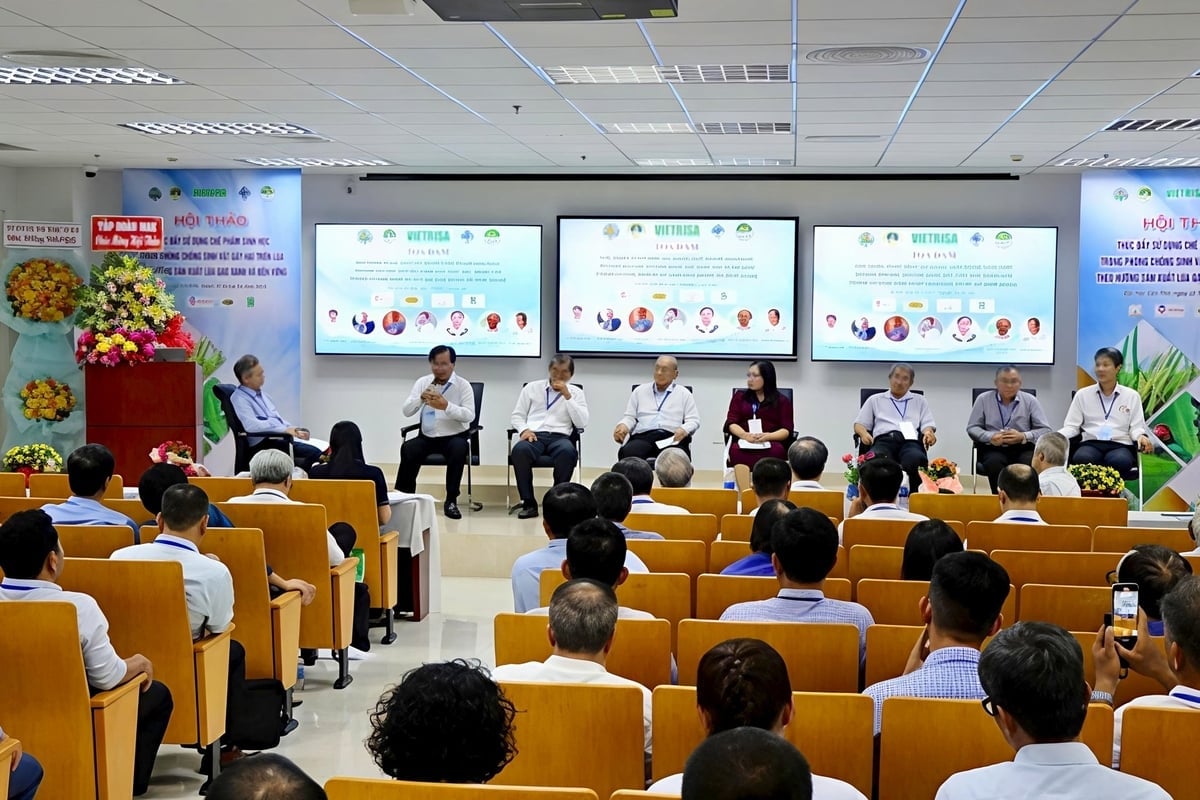
The seminar "Promoting the use of biological products in pest control in rice cultivation towards green and sustainable rice production" was held at Can Tho University. Photo: Kim Anh.
Assessing the current situation of biological pesticide use, Professor Dr. Nguyen Van Tuat - Chairman of VNPPA - stated that in 2023, the amount of biological pesticides used nationwide exceeded 9,100 tons (accounting for 19.46% of the total amount of pesticides used). Of this, in the Mekong Delta - a region with high agricultural intensity - the amount of biological pesticides used accounted for over 40% of the national total, equivalent to approximately 3,707 tons.
Based on the amount of biological pesticides used, Mr. Tuat assessed that Vinh Long is the locality with the highest use of biological pesticides in the Mekong Delta, with 2.18 kg/ha of cultivated land. Can Tho City and Ca Mau have average usage levels, with amounts ranging from 1.15-1.31 kg/ha of cultivated land. An Giang and Dong Thap provinces, on the other hand, have low usage levels of biological pesticides, with amounts ranging from only 0.39-0.65 kg/ha of cultivated land.
Mr. Tuat further noted that rice is the main crop in the Mekong Delta region, and the use of biological pesticides is essential. However, currently, the amount of biological pesticides used on rice is still low compared to other crops.
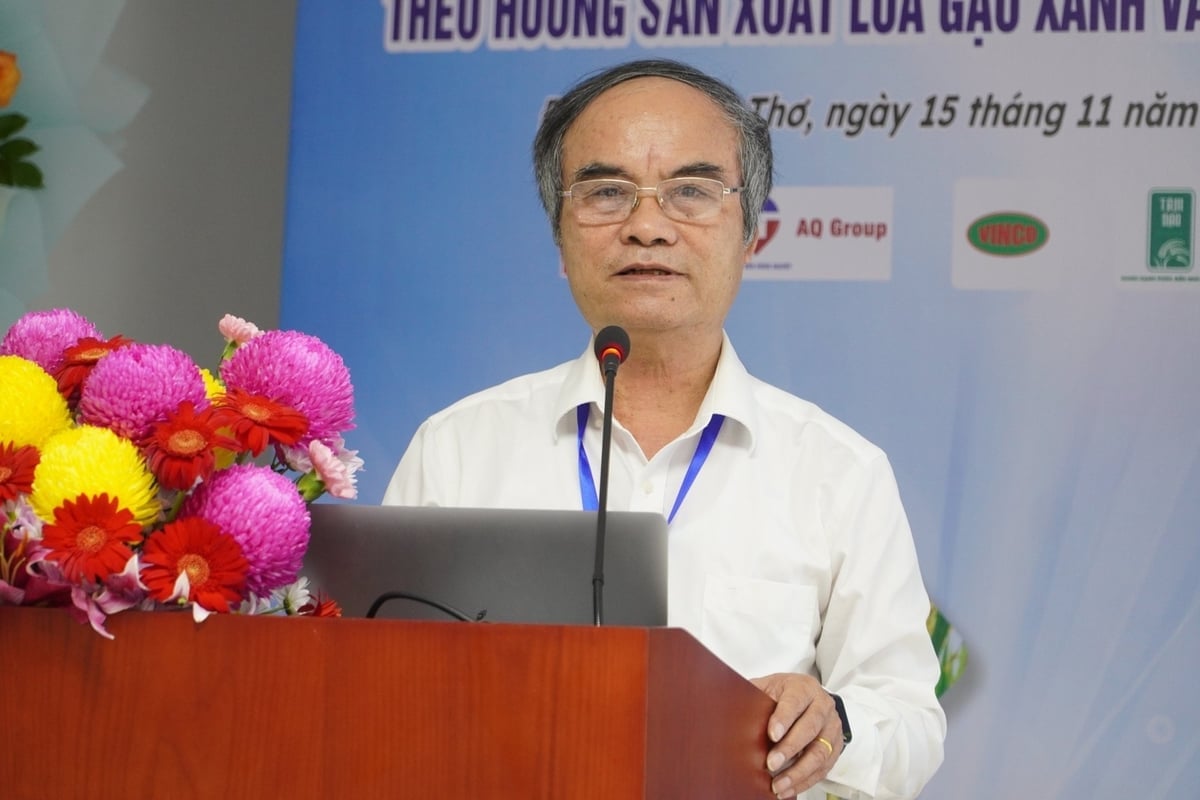
Professor Dr. Nguyen Van Tuat - Chairman of the Vietnam Plant Protection Science and Technology Association (VNPPA) assesses the current state of biological pesticide use. Photo: Kim Anh.
In Can Tho City, rice plays a key role in the agricultural production structure, with an annual cultivated area of over 700,000 hectares and a production of over 4.5 million tons. However, the City's Department of Crop Production and Plant Protection acknowledges that the use of biological pesticides remains modest, accounting for less than 17% of the total amount of pesticides used. On average, Can Tho farmers use between 1.07 and 1.11 kg of biological pesticides per hectare per year (during the 2023-2024 period).
According to Ms. Tran Thi Kim Thuy, Deputy Head of the Department of Crop Production and Plant Protection of Can Tho City, the reason for this situation is that some farmers are still hesitant and do not trust the effectiveness of biological pesticides compared to traditional chemical pesticides. The use of biological pesticides also requires technical knowledge (dosage, timing, weather conditions), while long-standing farming habits make people reluctant to change.
Furthermore, some biological products are expensive, slow-acting, and lack strong competitiveness in the market, especially in the context of rising input costs, where farmers prioritize "fast and strong" solutions to protect yields. On the other hand, the number of registered and circulating biological pesticides in Can Tho is still limited, and some products are not truly suitable for the climate and soil conditions of the Mekong Delta region.
The issue of obtaining a "birth certificate" for biological pesticides.
In addition to the issues mentioned above, Engineer Ho Quang Cua asserted: "Getting a 'birth certificate' for biological pesticides is currently too difficult." He cited an example: "Our ST25 rice variety was fortunate to be tested in six regions across the country and recognized individually in each region. However, the Trichoderma product (antagonistic fungal strains) developed by Dr. Duong Minh (Can Tho University), which has been well-known for a long time, is still an experimental product and has not yet been included in the list of biological pesticides."

Engineer Ho Quang Cua asserts that the current process of certifying biological pesticides is extremely difficult. Photo: Kim Anh.
In addition, the technology for preserving biological pesticides was also discussed. Engineer Ho Quang Cua said that he had been a "victim" of expired biological pesticide products. Therefore, he believes that in order to develop biological products for safe rice production, the relevant professional sector needs support in product certification and technology for long-term product preservation.
According to statistics from the Department of Crop Production and Plant Protection (Ministry of Agriculture and Environment), in 2024 only 39 biological pesticides were registered in the List, out of a total of 393 pesticides.
Thus, the cumulative total of biological pesticides in the List is 857 trade names (according to Circular No. 25/2024/TT-BNNPTNT and amending Circular No. 03/2025/TT-BNNMT), while the List of pesticides permitted for use in Vietnam has 4,374 trade names.
According to a representative from the Department of Crop Production and Plant Protection, the Department still has preferential policies for registering biological plant protection products. For example, the testing period has been shortened to only 4 trials in two regions on a large scale, instead of 10 trials as required for registering chemical plant protection products.
Regarding efficacy, while chemical pesticides require an efficacy rate of 75% or higher, biological pesticides require a lower efficacy rate of around 70%. In terms of registration procedures, the Department of Crop Production and Plant Protection prioritizes expedited processing for businesses registering biological pesticide products. Despite these measures, however, these solutions have not yet created the impetus to boost the development of biological pesticide production.
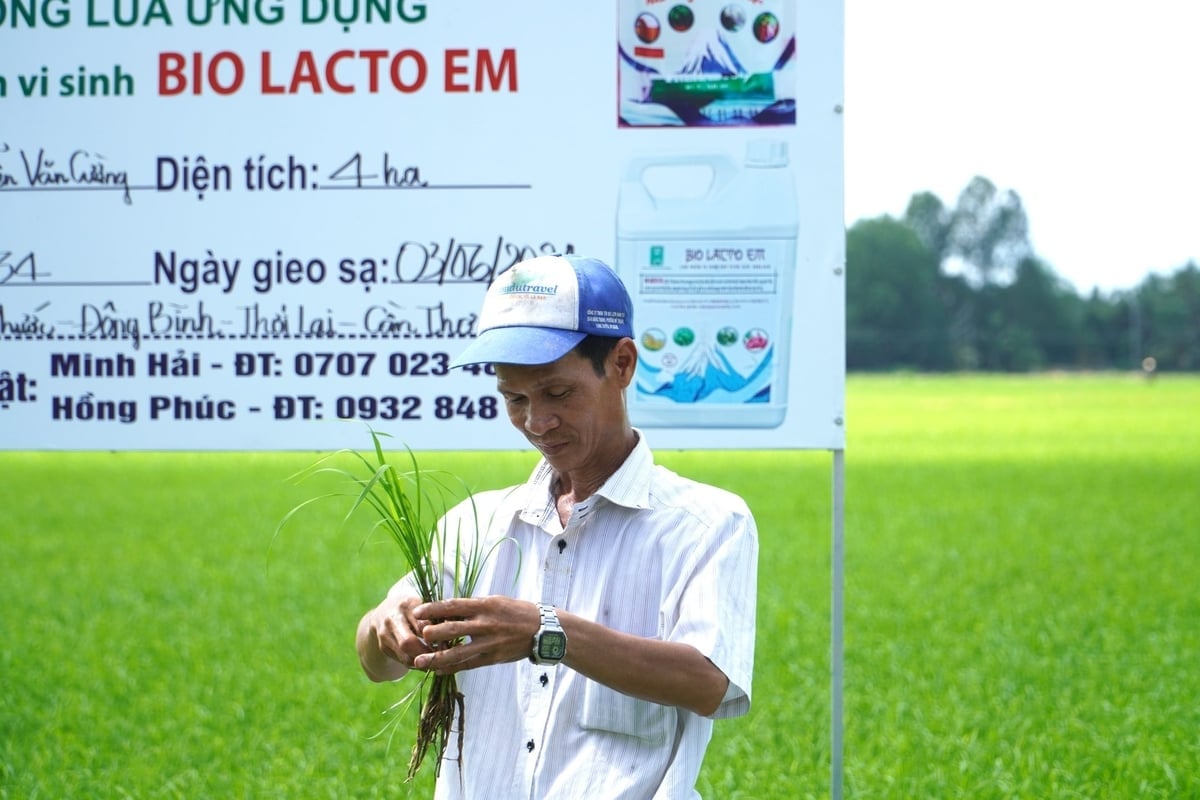
The use of biological pesticides in the Mekong Delta region is currently still low. Photo: Kim Anh.
Some experts also suggest that it is necessary to learn from and select experiences from around the world to supplement and improve regulations on the management of biological pesticides. In particular, emphasis should be placed on reforming the registration process for biological pesticides to harmonize with the regulations of developed countries.
These include: issuing a list of low-risk biological pesticides, eliminating some testing data requirements for these products to simplify registration procedures; establishing regulations on cases where pesticides are given priority for special registration; increasing the validity period of biological pesticide registration certificates to 10-15 years, instead of the current 5 years; adding regulations allowing only online sales of biological pesticides; and reforming regulations on labeling of biological pesticides…
Source: https://nongnghiepmoitruong.vn/lam-giay-khai-sinh-cho-thuoc-bvtv-sinh-hoc-qua-kho-d784476.html















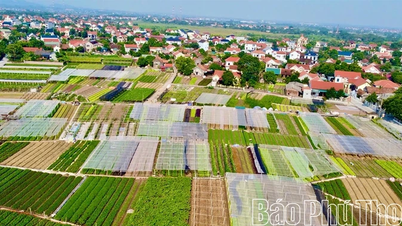

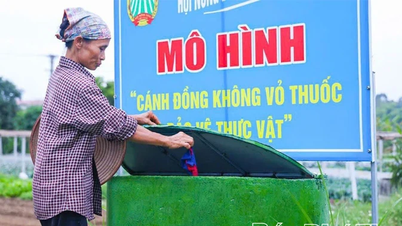

























































































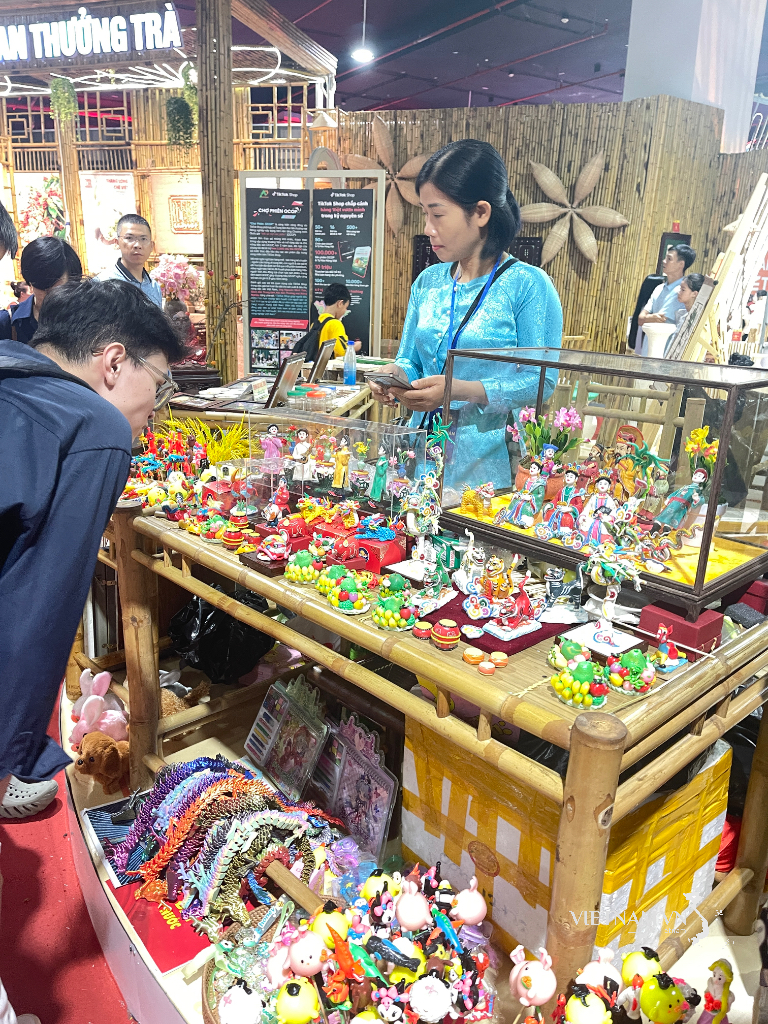
Comment (0)